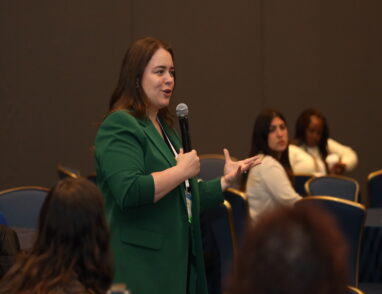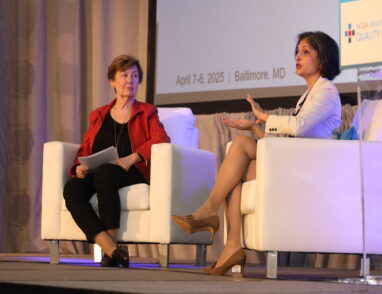National STI Awareness Week: Increases in Chlamydia Screening Rates and a New HEDIS Measure for Congenital Syphilis
April 15, 2025 · Becky Kolinski
The Centers for Disease Control and Prevention (CDC) estimates that 1 in 5 adults has a sexually transmitted infection (STI), and that the cost associated with STI treatment exceeds $16 billion annually. National STI Awareness week—observed April 14–20—is an opportunity to raise awareness about STI prevention, screening and treatment.
Measurement Drives Improvement in Chlamydia Screening Rates
Chlamydia is the most commonly reported bacterial STI in the U.S. If untreated, it can contribute to infertility, pelvic inflammatory disease and an increased risk of acquiring other STIs. NCQA’s HEDIS® measure for chlamydia screening looks at screening rates for sexually active individuals 16–24 years of age.
Screening rates have increased since NCQA began publicly reporting results.
- Commercial HMO rates increased by 111% from 2001 to 2023.
- Commercial PPO rates increased by 67% from 2005 to 2023.
- Medicaid HMO rates increased by 40% from 2001 to 2023.
“NCQA’s HEDIS measure for chlamydia screening shows how quality measurement and reporting can raise awareness and shift patterns of care delivery,” says NCQA’s Tejal Patel, Senior Research Associate, Population Health. “We hope to use a similar quality improvement model to increase screening for syphilis during pregnancy to prevent congenital syphilis.”
NCQA Is Developing a New HEDIS Measure for Congenital Syphilis
NCQA is partnering with the National Association of County and City Health Officials to develop a new HEDIS measure to assess screening for syphilis during pregnancy. The project is funded by the CDC.
Congenital syphilis occurs when syphilis—a treatable STI—passes from a pregnant individual to a baby during pregnancy or at birth. It can contribute to poor health outcomes, including failure to thrive, hearing or vision loss and neurological problems.
Cases of congenital syphilis in the U.S. have more than tripled in recent years, with more than 3,800 cases reported in 2023—the highest number reported in a single year since 1994. Congenital syphilis can be prevented by screening pregnant individuals—and providing treatment after a positive screen—to reduce the chance of transmission.
The U.S. Preventive Services Task Force is updating its recommendation on syphilis screening during pregnancy. CDC and clinical practice guidelines recommend screening for syphilis at multiple points during pregnancy, but screening policies are not consistent.
“Screening guidelines vary, especially in states hardest hit by the recent surge in cases of congenital syphilis,” says Patel. “We are reviewing the literature and clinical evidence to ensure that our HEDIS measure aligns with the most appropriate screening guidance.”
Measure Development Process
The proposed measure will evaluate appropriate screening for syphilis—and potential follow-up after a positive screening—during pregnancy and delivery. NCQA measure development follows this process:
- Review evidence and convene experts to advise on measure development.
- Present the draft measure to NCQA advisory panels.
- Test the measure with health plans and health care delivery systems.
- Solicit feedback on the proposed measure through public comment.
NCQA is also exploring opportunities for collaboration on future measures through our Birth Equity Accountability through Measurement project.
NCQA Is Recruiting Organizations to Participate in Measure Testing
NCQA seeks health plans and health care delivery systems to test the availability and completeness of structured data from electronic clinical databases and to help us determine the feasibility of a congenital syphilis measure.
If your organization would like to participate in this testing effort, contact Tejal Patel.
Learn More
Watch our webinar about early screening, diagnosis and treatment of congenital syphilis, and how the patient-centered medical home care model can be used to address the issue.
Sources:
https://www.cdc.gov/sti-awareness/about/index.html
Development of a Congenital Syphilis Prevention Measure for Potential Inclusion in HEDIS is supported by the National Association of County and City Health Officials (NACCHO) with funding from Centers for Disease Control and Prevention of the U.S. Department of Health and Human Services (HHS). The contents are those of the authors and do not necessarily represent the official views of or endorsement by, the CDC/HHS or the U.S. government.








